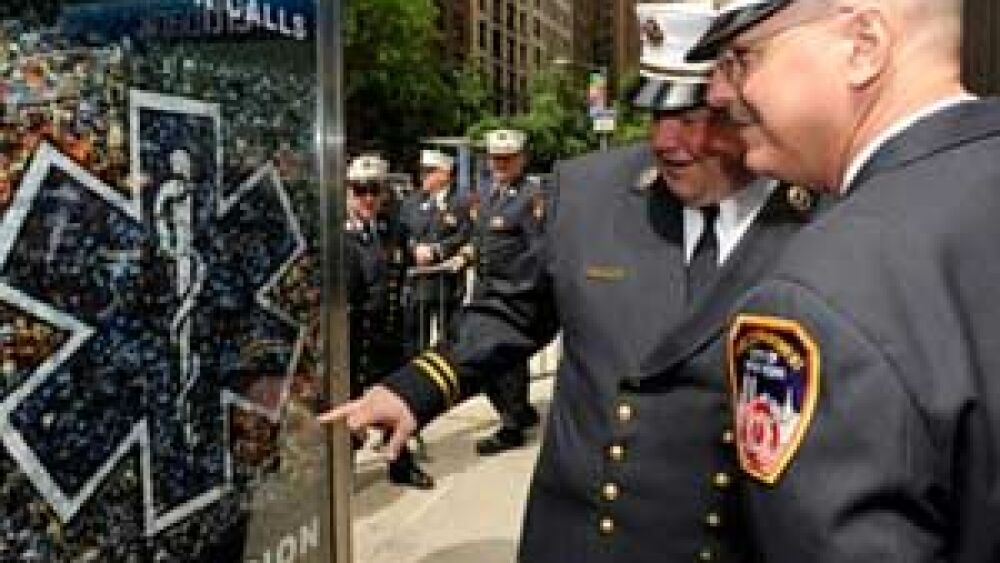By Art Hsieh, EMS1 Editorial Advisor
As EMS Week draws to a close, you may have participated in some event that celebrates what we do in protecting the health of our communities; you might have recognized how much the public looks toward us for leadership in times of crisis to provide a supportive word or comforting touch along with high quality care. That is all good.
But, what happens next week? And the week after that?
For 51 weeks out of a year, we depend on ourselves to ensure that we be there, no matter what — anywhere, anytime. And that means not resting on our laurels during those 51 weeks. So I propose to you, my fellow EMS colleague — do you do everything you can to make sure that you will be there? Consider these points:
Education — You probably took your initial EMS training fairly seriously. It was a lot of work to become that EMT, Advanced EMT or Paramedic, probably more than you expected. How do you feel about your continuing education? Do you groan and passively try to minimize your ongoing training? Do you scramble at the last minute to get your CE hours done?
You know that medicine is a continually evolving science, which is why we are always “practicing” it. You might feel that you don’t have access to quality education. I bet that’s true — but do you just grumble about the situation, or do you do something about it? How about forming a CE club, where a bunch of great EMS providers (including you) get together, with one providing a couple hours of training on a topic he or she has a real interest in. An approved CE agency sanctions the event. If everyone does one, there’s little or no cost and lots to gain.
Do you go to a conference at least once a certification period? The national ones are great, but there are many terrific local or state events that bring together some of the best and brightest in our profession. Plus, the ability to network is priceless. There are many online educational opportunities as well. Hopefully you get the picture — there’s little reason to not look for great training that will take your care to the next level.
Ethics — I’ve noticed in the social media as well as in the public press how much we focus on bad news, and when EMS folks mess up. As the news industry says, “if it bleeds, it leads”.
There is good cause for that, I believe, especially in our profession. Society places great trust in its public safety providers — there is a certain amount of expectation on that EMS provider who comes to your door in the middle of the night, who will behave respectfully and ethically.
It can be very easy to break that trust, for the community to lose faith in the individuals and institutions who are supposed to protect them. Think about it this way: Each day, as you perform your duties, each incident you run helps to build the public trust. Day after day you strengthen that bond, one patient after another. Most of these interactions happen privately, so the community will never really know all of the good you might do.
But one day, a major mistake in judgment happens and boom — your agency is in the press. Suddenly everyone knows about the issue, and all of the good deeds you have performed are suddenly reduced to nothing. And it may take a long time before you will be able to rebuild that level of confidence.
That’s why ethical behavior is so important. No one says that making the right choice is easy, and making good ethical decisions often come with their own consequences. However, it is what will protect you and your reputation in the long run.
There are lots of theories about ethical behavior, but the one that I like the most revolves around my mother — “If the issue had something to do with my mother, what would I do?” You can insert the name of the person you hold most dear if you want, the concept still holds. Given the situation, the most rational, moral and legal action is the one to take, not the easiest nor the simplest.
Advocacy — We advocate for the best care for our patients. Who advocates for our well-being as EMS providers? The answer of course is us — we can’t depend upon others to do this. Among other qualities, the mark of a true profession is one that advocates for itself.
Advocacy comes from the Latin word advocare meaning to “call for aid.” The first annual EMS on the Hill Day in Washington, DC was a success from the viewpoint that for the first time, we called upon members of Congress to help fund our services and provide equal access to federal death benefits for any EMS provider, regardless of employer (add link to story).
Now, you don’t have to go to Washington, DC to advocate — reach out to your local and state elected representatives, your local city or county manager, or anyone who has some control over your purse strings. Tell them what you do every day, behind the scenes, to protect the community’s health and safety. You may be surprised how little they actually know about your job — educate them.
I don’t think that any of these ideas are difficult to implement, but finding the motivation to bring them to life might be a challenge during times when money is tight and resources are stretched thin. And that’s when it’s the best time to make it happen, because you are the professional.
Art Hsieh, MA, NREMT-P, is Chief Executive Officer & Education Director of the San Francisco Paramedic Association, a published author of EMS textbooks and a national presenter on clinical and education subjects.












